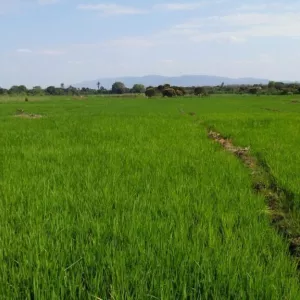COP30 can enable Greening Plant Nutrition in East and Southern Africa
Image creditAfrica rice farming by majimazuri21, Pixabay Licence By Jamie Males (republished from the original PLOS Blog article) In this blog post, Leanne Zeppenfeldt, Dhanush Dinesh, Ana Maria Loboguerrero, Jon Hellin, and Phil Thornton discuss the key messages in their new co-authored PLOS Climate Essay, “Towards a green plant nutrition transition in East and Southern Africa”. This Essay was in turn the result of a

COP30 can enable Greening Plant Nutrition in East and Southern Africa
By Jamie Males (republished from the original PLOS Blog article)
In this blog post, Leanne Zeppenfeldt, Dhanush Dinesh, Ana Maria Loboguerrero, Jon Hellin, and Phil Thornton discuss the key messages in their new co-authored PLOS Climate Essay, “Towards a green plant nutrition transition in East and Southern Africa”. This Essay was in turn the result of a multistakeholder ‘think-table’ co-convened by PLOS Climate and Clim-Eat in December 2024.
Around 70% of African cultivated soils are degraded, and massive yearly nutrient losses are common throughout the continent. If Africa is to prosper and achieve food security while facing population growth and climate change, plant nutrition will need to be green, accessible, and affordable. This could provide an opportunity for African nations and farmers.
At the same time, the promise of greening plant nutrition faces stark challenges, particularly regarding the political economy of change. The balance between opportunities and unintended consequences is delicate: the heart of any roadmap towards green(er) plant nutrition needs to revolve around the myriad local contexts within which farmers operate. This needs to be recognized and prioritised at COP30 and other global policy processes.

